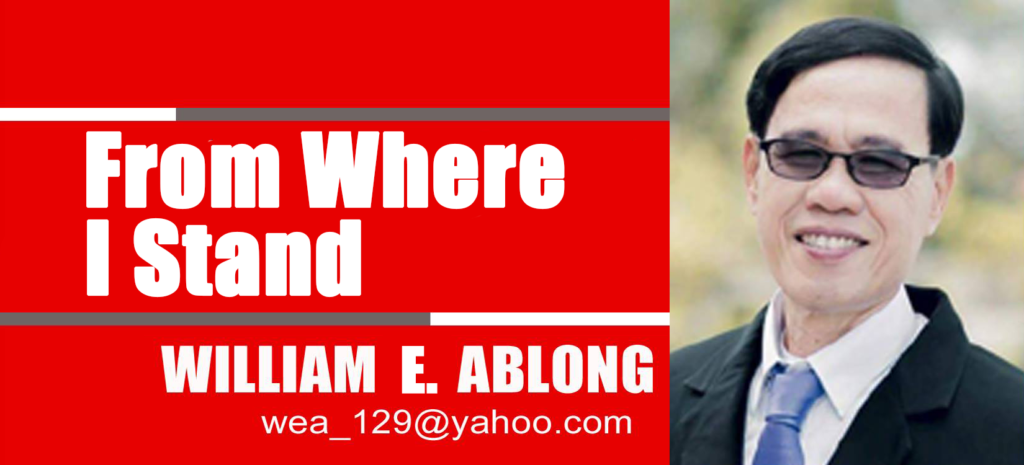
I AM saddened by a newspaper report describing the bedlam at the headquarters of the Department of Social Welfare and Development (DSWD) in Manila, where potential beneficiaries scrambled for the government’s newly-announced financial assistance.
The report said that thousands of people swarmed the agency’s central office, and apparently, also at its satellite offices around the country, hoping to receive anywhere from P1,000 to P4,000 as part of the P500-million package that Social Welfare Sec. Erwin Tulfo announced would be distributed to the public.
I am not sure yet if the scheme will be implemented or has already been implemented here in Dumaguete or the province. However, I am quite sure that if the same benefit will come to our place, the CSWD (and all other authorized outlets/agencies) will have the same scenario – the offices will be swamped with sweating, confused, and perhaps, angry people.
Mentality of dependence
I am aware that every one of us needs all the help we can get from whatever direction. While pandemic restrictions have eased up, businesses are bouncing back, we now have face-to-face classes, and everything seemed to have a semblance of normalcy, all of us are aware that we are still experiencing the ill effects of Covid-19 (economic-wise). Thus, the package that the DSWD is distributing to the public looks attractive. But I am apprehensive.
This type of wealth-distribution system can develop a mentality of dependence that deceives the poor into thinking that they are entitled to government assistance (yes, the government should help us, but not this way). Because of this assistance, people will stop relying on their own efforts, which is actually crucial to the improvement of their status.
I believe a better way (that would have more impact) would be to allocate public funds for improving social services and programs that could build up the self-reliance of Filipinos, for instance, through education, entrepreneurship, and micro-finance.
Government statisticians reported last week that a projected 2.3 million Filipinos joined the ranks of the poor since the COVID-19 pandemic broke out in early 2020. This means that, in total, there are now almost 20 million of our citizens living below the poverty line, defined as a monthly income of P12,030 for an average family of five.
Here in Dumaguete, I do not have the numbers, but it is very clear from personal observations that many thousands of Dumaguetnons are living below the poverty line. I am quite sure that when the fresh “ayuda” finally comes to this city, government offices will be crammed with people, all too eager to get their share of the pie.
But again, this is “dole-out.” It won’t last.
“Dole-outs”
In economic terms, dole-outs can be categorized as a system of wealth distribution carried out by the government aiming to deliver momentary economic respite to the members of the community. The expectation of this type of wealth distribution system is that the channeled money would drive the consumption of goods and services, thus, stimulating the economy.
Leftist politicians and left-leaning groups say that wealth distribution is a method of promoting social justice, while Catholics and other Christian denominations would preach that the virtue of generosity manifests itself in wealth distribution. However, I don’t fully agree especially when one considers how ineffective and unsuccessful dole-out systems are. It is actually a waste of taxpayers’ resources. Dole-outs are mere band-aid solutions that are never meant to last. As it is, distributing wealth does not generate wealth and, instead, weakens its inherent value.
What must be done
Besides reviving the economy to guarantee that sufficient jobs are created for workers, a lucid, consistent plan needs to be established to warrant all agencies of government to work toward this extraordinary goal.
Simultaneously, the focus needs to be given to the millions of young learners who got mediocre-quality education during the last three years when face-to-face classes were banned.
Because of the years of not having “real classes,” the youth became less educated, less employable, and thus, less productive members of society as they continue their lives due to the gap in learning in those last two years.
I think resources must be channeled their way to prevent them from becoming “lost,” from becoming a burden to the economy, similar to the Japanese youth who suffered the condition of that country’s inertia in the 1990s and now are trapped in boring and tedious jobs with no upward social mobility.
Special attention must be given to enhancing the quality of online education that our students are getting to guarantee that they can become equal to the rest of their peers, as blended learning remains a viable mode while the pandemic continues.
The disadvantaged deserve more self-respect than joining a messy, disordered crowd of aid seekers outside a government office waiting for short-term relief.

